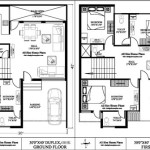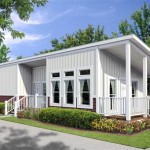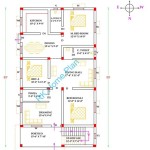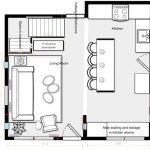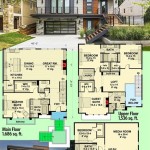Essential Aspects of Floor Plan Location
The location of a building's floor plan plays a crucial role in its overall functionality, aesthetic appeal, and value. Careful consideration of various factors is essential to determine the optimal floor plan location that enhances the quality of living or working space.
1. Access and Connectivity
Accessibility is a key factor to consider. A well-located floor plan should allow for easy access to entry and exit points, as well as common areas such as lobbies, elevators, and stairwells. Good connectivity to transportation networks, including public transportation and major roads, is also essential for convenience and ease of commuting.
2. Natural Lighting and Ventilation
Natural lighting and ventilation are essential for creating a healthy and comfortable indoor environment. The location of the floor plan should maximize the amount of natural light that enters the space, reducing energy consumption for lighting while creating a more welcoming atmosphere. Cross-ventilation capabilities promote air circulation and improve indoor air quality.
3. View and Orientation
Floor plan location can also impact the views available to occupants. Views of natural landscapes, urban skylines, or water bodies can significantly enhance the desirability and value of the property. The orientation of the floor plan should consider the sun's path to optimize natural lighting and reduce heat gain during summer months.
4. Privacy and Noise Reduction
Privacy and noise reduction are important factors to consider when choosing a floor plan location. Units located in quieter areas of the building and away from high-traffic corridors or noisy neighbors can provide a more peaceful and relaxing living environment. Strategic placement of walls and windows can help buffer sound and ensure privacy.
5. Safety and Security
Safety and security are paramount concerns. Floor plans located near secured entrances or with good visibility from public areas can provide a sense of security for occupants. Features such as doorman services, security cameras, and controlled access systems can further enhance safety.
6. Proximity to Amenities
Proximity to amenities within the building or surrounding neighborhood is a major factor in floor plan location. Factors such as proximity to parking, shared spaces, fitness centers, or retail and dining options can significantly enhance the convenience and desirability of a unit.
7. Building Infrastructure and Design
The building's infrastructure and design can also influence floor plan location. Factors such as the location of elevators, stairwells, plumbing, and electrical systems can impact the layout and functionality of a floor plan. It is essential to consider the overall building design and infrastructure to ensure a well-integrated and functional floor plan.
Conclusion
Selecting the optimal floor plan location is a complex task that requires careful consideration of various factors. By considering access, natural lighting, view, privacy, safety, proximity to amenities, and building infrastructure, you can identify the ideal location that enhances the quality of the living or working space.

Floor Plan Layout And Location Of Installed Sensors Scientific Diagram

Interactive Floor Plan Maps In Html5 Image Map Creator

Floor Plan With Location Of Openings And Equipment Scientific Diagram

Floor Plans For Schools Colleges Universities Hospitals Business

Floor Plan With Doors And Public Displays Top Location Model Scientific Diagram

Feature Spotlight Building Floor Plan Overlays For Endpoint Maps Syn Notification Unified

Site Plan And Location Map Details Of Residential Houses Dwg File

How To Create A Network Layout Floor Plan Plans Office Location

A Guide To Creating Your Site Location Plan

Residential House Site Plan And Location Map Drawing Details Dwg File Cadbull

